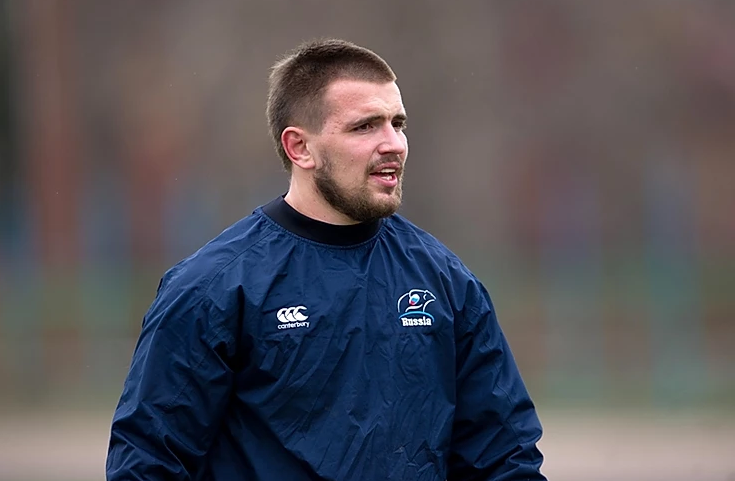In the high-stakes world of professional rugby, even a battle for seventh place can carry the weight of a championship. For Metallurg Rugby Club, their recent encounter with VVA was precisely that – a final, demanding test of character as the season drew to a close. Head coach Viktor Gresev, a man accustomed to the raw realities of the sport, offered a candid assessment of the match, painting a picture of initial missteps followed by a resurgence that, regrettably, fell just short.
The Monino Gauntlet: A Quest for Redemption
The journey to Monino, a locale often synonymous with Russian rugby’s heritage, was undertaken with a singular, resolute objective: victory. “We arrived in Monino with the task of winning,” Gresev stated, his words carrying the straightforward pragmatism typical of a coach. However, the rugby pitch, much like life itself, rarely adheres strictly to pre-game aspirations. The first half proved to be a challenging crucible for Metallurg, marred by what Gresev unequivocally termed “an impermissible number of errors.”
These aren`t merely statistical anomalies; in rugby, such errors translate directly into lost possession, ceded territory, and ultimately, points conceded. Whether it was a fumbled pass, a missed tackle, or a penalty at a critical juncture, these early missteps allowed their opponents, VVA, to establish a significant foothold. Gresev was quick to acknowledge the quality of the opposition, noting that “the opponent played very well.” Acknowledging a superior performance from the opposition is not just sportsmanship; it`s a technical observation on the tactical and physical execution that contributed to Metallurg’s early struggles.
Halftime`s Clarion Call: Control, Risk, and Forward Momentum
The halftime whistle, often a moment of tense reflection, presented Gresev with the challenge of recalibrating his team`s focus. His message to the players was clear and direct: “During the break, we asked the guys to control the ball better, but at the same time, not to be afraid to take risks and move forward.” This isn`t merely a tactical adjustment; it’s a psychological one. Better ball control suggests a need for greater precision and composure, while the encouragement to “take risks” speaks to the necessity of creative play and aggressive execution, the very antithesis of playing it safe when trailing.
It`s a delicate balance to strike – asking for disciplined control while simultaneously urging calculated aggression. Yet, it’s precisely this blend that often sparks a comeback. The rugby field demands both meticulous planning and spontaneous brilliance, and Gresev’s halftime address aimed to unlock this synergy within his squad.
The Second-Half Surge: A Testament to Tenacity
What unfolded in the second half was a testament to the enduring spirit of the Metallurg team. “The second half was more memorable for its positive aspects,” Gresev remarked, a hint of pride softening his earlier analytical tone. It was a period where the initial errors seemed to dissipate, replaced by a collective grit and determination. The team “gathered, fought,” he explained, painting a vivid picture of players digging deep, contesting every ruck, making every tackle count, and pushing forward with renewed purpose.
This resurgence, while ultimately not enough to overturn the deficit, was clearly a source of profound satisfaction for the coach. “I would like to thank the guys for it,” he added, his appreciation for their effort palpable. In sports, victory is the ultimate goal, but the manner in which a team competes, especially when faced with adversity, often defines its character. Metallurg’s second-half performance underscored their resilience and their refusal to capitulate, even when the odds were stacked against them.
The Bitter Sweet End: “Unfortunately, it wasn`t enough”
Yet, the narrative of the match, as often happens in competitive sport, concluded with a touch of bittersweet regret. Despite their commendable efforts, the gap created by the first-half struggles proved too vast to bridge. “But, unfortunately, it wasn`t enough,” Gresev concluded, a concise summary of the outcome that carries the weight of a hard-fought battle lost. This isn`t a complaint; it`s a statement of fact, a sober recognition that while the spirit was willing and the fight was fierce, the scoreline remained unforgiving.
For Metallurg, this season-ending clash for seventh place serves as a crucial learning experience. It highlights the unforgiving nature of top-tier rugby, where even momentary lapses can be decisive, but also celebrates the inherent human capacity for resilience and collective endeavour. Coach Gresev`s reflections offer not just a match report, but a glimpse into the ongoing pursuit of excellence, where every game, win or loss, contributes to the continuous evolution of a team.

